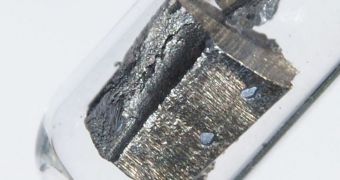Rare-Earth elements, as the name implies, are extremely valuable, useful and difficult-to-come-by chemicals. Identifying deposits has thus become a lucrative business, with far-reaching consequences.
The United States does not have some many areas where it can extract this class of elements from, and is exceeded in production by China, which boasts control over most of the world's REE reserves.
However, the Asian nation has made it abundantly clear in recent statements that it will soon cease all REE exports, given that it can barely cover its own demand.
Under such circumstances, the US is forced to scout its own land even deeper, and the Boeing Company has been selected as the main contractor for this effort.
The corporation will use remote sensing technology to map out all available or hidden rare-Earth elements in the United States.
The chemicals are used in anything from mobile phone and high-quality speakers to military equipment, and supplies are running dangerously low around the globe.
If Boeing manages to find significant reserves in the US, then the nation could break the Chinese monopoly in this lucrative market, and also ensure its own supplies for the years to come.
Recently, the company US Rare Earths Inc. made a claim stating that it had found important REE reserves at locations in the states of Idaho and Montana.
Officials at Boeing announced that they will begin their analysis by trying to confirm the discoveries.
“They’re very interested in finding and validating domestic reserves,” explains the public relations coordinator for US Rare Earths, Patrick Kennedy.
The US, Australia, Canada and South Africa are currently the main nations on which the world relies for producing REE other than China, but new mines will not open in these countries earlier than 2014.
Some industry giants and large corporations have already begun taking steps to ensure their own personal reserves of rare-Earth elements in case things go south with China.
Such companies include Toyota and General Electric, LiveScience reports. Boeing is the last to join the race, through the use of airplane- and satellite-based remote-sensing technologies.
Details of how the investigations method work have not been released, and probably won't be any time soon.
Experts estimate today that it will take at least 15 years before the US can build its own REE chain of supply, and get rid of its dependency on China.

 14 DAY TRIAL //
14 DAY TRIAL //